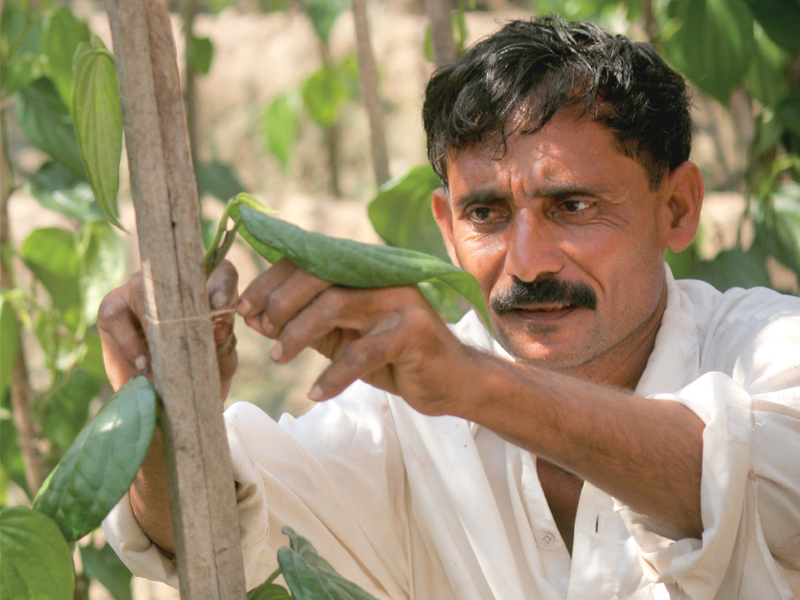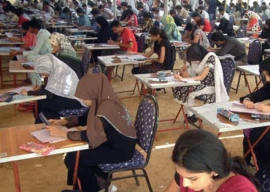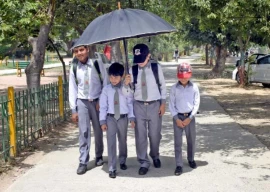
Three kinds of betel leaf are grown in Thatta’s farms - Pakistani, Sanchi and Saloon. The demand for Pakistani leaf is the lowest in the market while the rates of Saloon are very high. The Pakistani kind, on average, is sold at Rs200-Rs250 per kg. During the peak season, that is winters, it is sold at a high price of Rs500. The rate of Sanchi is between Rs300-Rs400 in the market currently while Saloon is being sold at around Rs600-Rs700. Interestingly, the production of Saloon is lower than the other two kinds of leaf.
Most of the farms along the road to Keti Bunder from Mirpur Sakro use half to one acre for betel leaf farming. The farm, locally called Chhappro, is protected with sticks as direct heat could damage its leaves. Farm owners and labourers can collect ripe leaves twice a week - roughly about 200kg leaves within a week. “The farming of betel leaf is increasing in the area as it is a low-cost crop and yields more profit when compared to other crops like sugarcane,” said Shakeel Memon, a farmer of Juho village, adding that betel leaf needs less water and yields more profit.
Allah Bachayo Kehar of Jalho village has been involved in betel leaf farming for more than seven years. His two workers and three brothers work on his land. He also hires a few labourers during the day when he has to transport the leaf to Karachi. “We collect ripe leaves on the first day and keep them in water for a night,” he said, adding that on the second day, they separate standard leaves from sub-standard ones and pack them in plastic bags.
Most of the farmers use their personal cars for bringing betel leaf into Karachi’s markets, Lea Market and Memon Goth. “It costs less and we could easily bring the leaf into the market with utmost care,” said another farmer of Jalho, Sikandar Kehar.
The farmer pays Rs300 per day to one labourer while a permanent worker who remains at the chhapro is paid Rs6,000 per month. About eight bags of insecticides [each Rs800] per month along with fertilisers costing Rs5,500 per month are used in farming. The process of leaf collection and its sale is not an easy task. The commission agent charges Rs15 per kg. “It doesn’t matter that an agent takes Rs15 per kg when it’s the peak season as a grower has an abundance of crop,” said Sikander.
A new grower has to purchase an immature plant for Rs150 and a farm of quarter acre costing Rs250,000. “It takes about two and a half months to yield the first earning from a new farm,” Allah Bachayo added. “The quality of Indian betel leaf is better than ours,” said Memon, adding that Thatta farmers are bringing seeds from the neighbouring country.
Published in The Express Tribune, October 16th, 2013.

































COMMENTS
Comments are moderated and generally will be posted if they are on-topic and not abusive.
For more information, please see our Comments FAQ